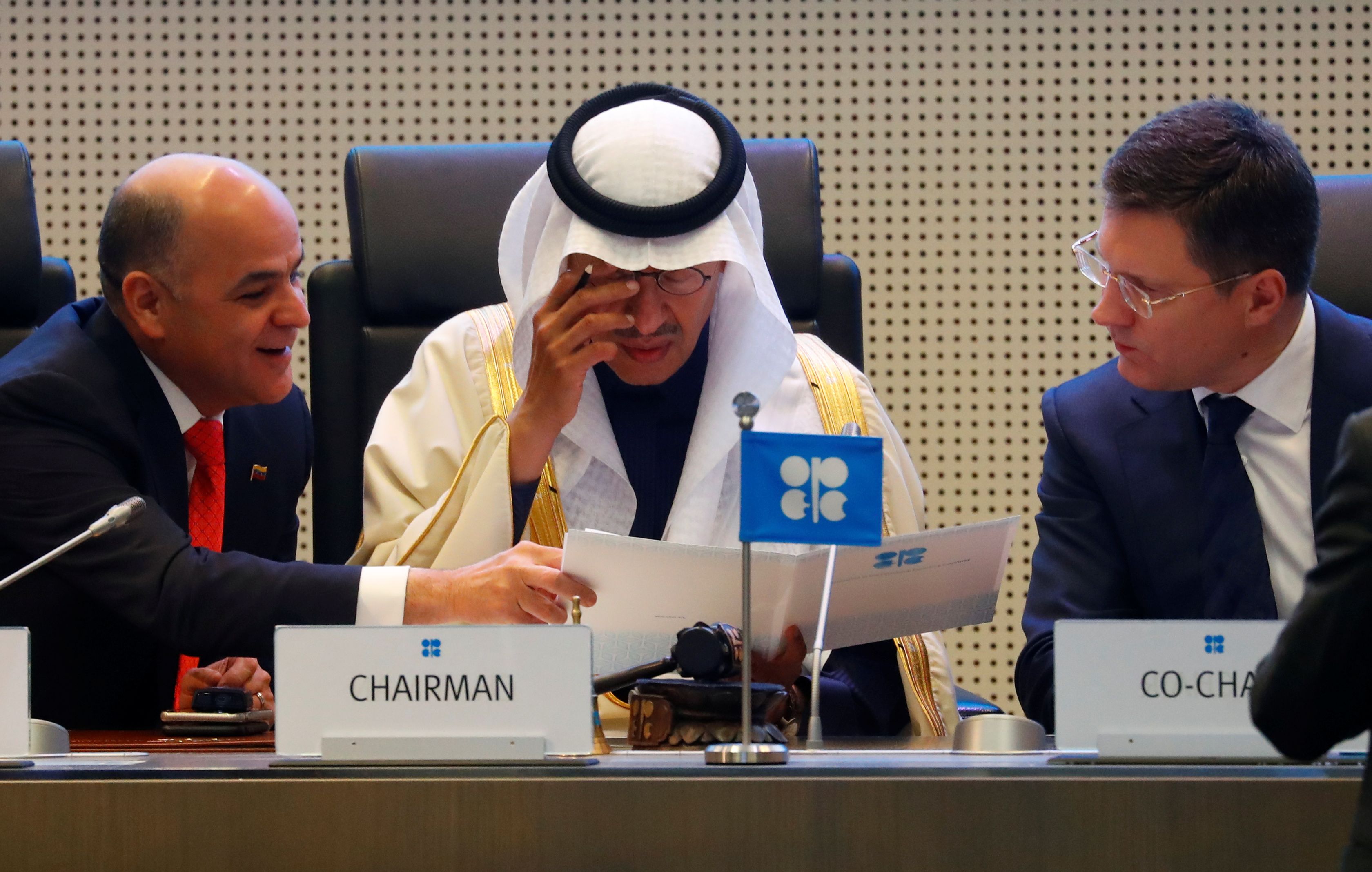The OPEC Dispute and the Arab-Saudi Rivalry
The OPEC+ talks planned for 5 July regarding oil-extraction policy have been cancelled because of the Saudi-Emirati dispute. The authorities of the United Arab Emirates (UAE) have rejected a proposal to extend production limits until the end of 2022. This is another event in the escalating rivalry between Saudi Arabia and the UAE, which will increase the volatility of oil prices.
 Fot. Leonhard Foeger/Reuters
Fot. Leonhard Foeger/Reuters
What is the dispute within OPEC+?
On 2 July, a meeting of OPEC+ (an alliance of OPEC and non-OPEC oil-exporting countries established in 2016 to control the supply of this raw material on the world market) was held to establish new oil production limits. This was related to the 2020 agreement ending in April 2022, which, due to the decrease in oil demand caused by the COVID-19 pandemic, imposed record high restrictions on extraction on OPEC+ countries. At the meeting, Saudi Arabia and Russia proposed a gradual increase in production and the extension of the current agreement until the end of 2022. The UAE accepted the proposal to increase production, but rejected the possibility of extending the agreement without increasing the reference level, the estimated production capacity for which limits are set. UAE authorities say their production capacity increased from 3.2 million barrels per day (b/d, set in 2018) to 3.8 million. The UAE’s opposition led to a stalemate and the cancellation of further talks on Monday. At the same time, the Emirates authorities announced that they do not plan to increase production in the near future.
What is the context of the rivalry between the UAE and Saudi Arabia?
In recent years, UAE policy towards the Middle East has grown more ambitious, and as a consequence, their independence from the traditionally dominant Saudi Arabia is increasing. This is evidenced by the UAE’s interest in joining the Eastern Mediterranean Gas Forum, normalisation of relations with Israel, which is being approached more carefully by Saudi Arabia, taking control of the Yemeni island of Socotra in 2018, and the withdrawal of troops from Yemen in 2019 where they have fought since 2015 within the framework of the coalition formed by Saudi Arabia. A few days after the unsuccessful OPEC+ meeting, Saudi Arabia announced it was lifting preferential customs duties on products imported from free economic zones (crucial for the UAE economy) and those created with the participation of Israel, which from 2020 has been cooperating with the UAE to increase mutual investments.
Why are the UAE authorities becoming more and more confrontational towards Saudi Arabia?
The most important threats to the enduring power of the monarchy in the UAE are Islamist and pro-democracy groups and the potential economic downturn resulting from the shift away from fossil fuels. Consequently, the priority of the UAE’s regional policy is to strengthen authoritarianism and counteract Turkey, which supports Islamists. In turn, the most important rival for Saudi Arabia is Iran. Additionally, the UAE and Saudi Arabia have different economic transformation strategies. Although both monarchies must limit the role of raw materials in their economies, Saudi Arabia wants to keep oil prices high for as long as possible at the expense of lower production (this is also to prevent OPEC’s Iran from quick enrichment in the event of a return to the nuclear deal), while the UAE wants to intensify production to protect itself from the consequences of the move away from fossil energy sources as fast as possible.
What could be the consequences for the future of OPEC+?
The need to transform economies dependent on trade in raw materials leads to an intensification of competition between them. Due to the economic uncertainty related to the COVID-19 pandemic, the UAE and Saudi authorities will not be inclined to make radical decisions related to the extraction of oil. Although the current dispute will most likely end in a compromise and there will be no price war (like the one between Russia and Saudi Arabia last year), similar frictions within OPEC will repeat and lead to increased volatility in oil prices. As a consequence, the group’s importance and credibility will decline. This will be conducive to the UAE’s ambitions as long as Saudi Arabia’s goals that are contrary to its policy play a dominant role in the grouping. Considering the economic goals and the increasingly independent policy of the UAE authorities in the long run, it is likely that they will pursue their interests within OPEC by drawing nearer to Iran and/or the departure of this country from the grouping.


